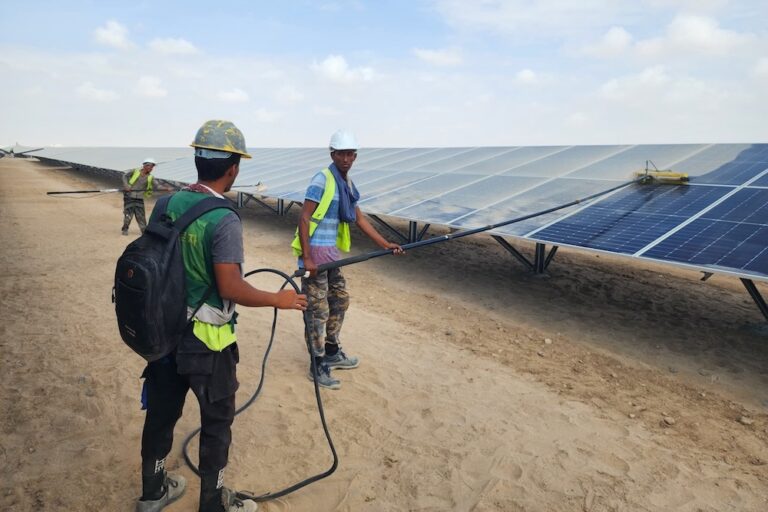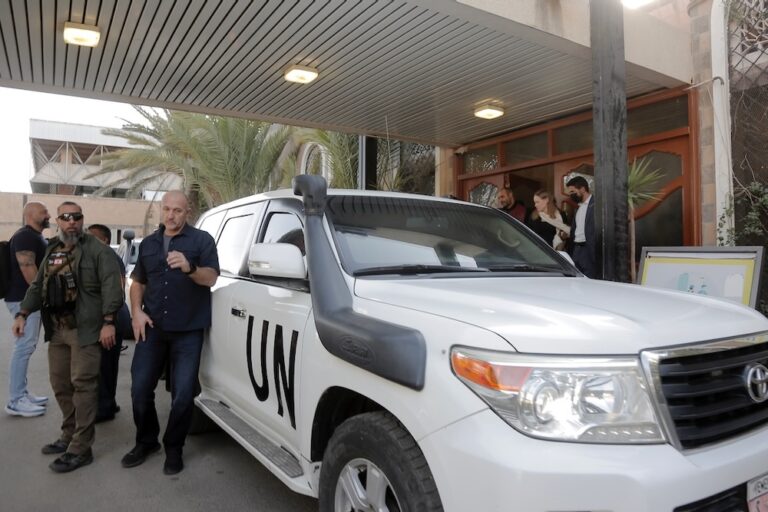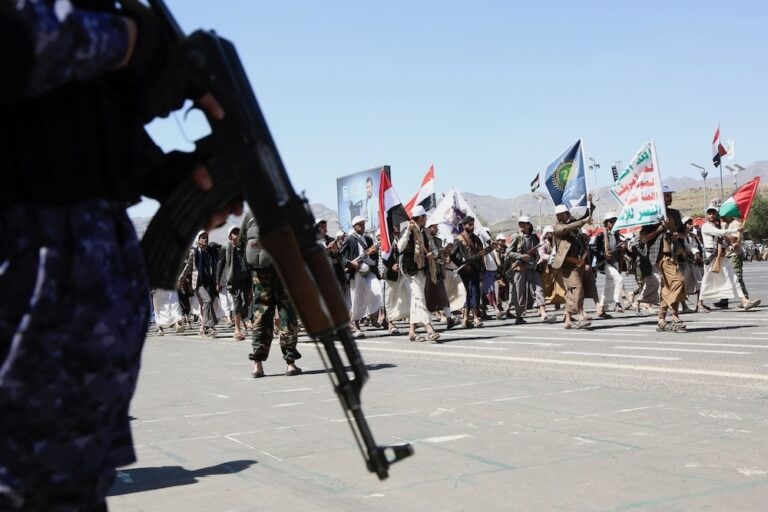IFEX members urge the UN Security Council to ensure the protection of journalists in Yemen in light of historic resolution.
President of the Security Council
H.E. Dato’ Ramlan Ibrahim
Permanent Mission of Malaysia to the United Nations
313 East 43rd Street
New York, NY 10017
mwnewyorkun@kln.gov.my
Your Excellency,
We, the undersigned organisations write to you with the gravest concern over the media safety crisis in Yemen. We urge the members of the United Nations Security Council to consider, as a matter of priority, all necessary measures to protect journalists who are reporting on the conflict in the country.
According to the Yemeni Journalists’ Syndicate, an affiliate of the International Federation of Journalists, eight journalists and media staff have been killed in Yemen since the start of 2015. In addition, 12 journalists are currently being held hostage and their lives are feared to be in danger.
Some, including Mohammed Rajah Shamsan, a reporter for the independent Yemen Today TV and three of his colleagues, were killed in an air strike by the Saudi-led coalition in April. Two other reporters, Abdullah Kabil of Yemen Shabab TV and Yousef Alaizry of Shuhail TV, were abducted by the Houthi rebel group on 20 May and held in a seismic monitoring centre located at Mount Oran. The centre was bombed the following day by the coalition, and the two journalists were also killed.
Others have been the victims of violent attacks by Houthi rebels who have taken over media houses and detained journalists. The rebels are still holding at least three journalists hostage, among them, Jalal Sharabi, Waheed Sufi and Ali Sanhan. Khalid Mohammed al-Washli, a correspondent for Al-Masirah TV, died of wounds he sustained in a road side bomb blast reportedly claimed by Al-Qaeda in the Arab Peninsula in an attack targeting Houthi rebels.
The Saudi-led Coalition in Yemen has also threatened media organisations associated with the Houthi rebels and that of former Yemeni president Ali Abdullah Saleh by declaring them to be legitimate military targets. On 29 March, Yemen Today, a TV station affiliated with Mr. Ali Abdullah Saleh, received a phone call from the coalition with a warning that the TV channel and its staff were such a target, prompting an evacuation of the building as a security precaution.
These attacks and threats demonstrate an escalation of violence that has dire consequences for the security of journalists in such a volatile situation. Not only are they facing attacks from the warring parties, which constitutes a blatant breach of international humanitarian law, but are also exposed to mob violence from opponents of the rebels and Mr. Abdullah Saleh.
We wish to stress that, beyond endangering journalists’ safety, targeting any sector of the media in Yemen is an unwarranted interference in their affairs that undermines independent reporting on the current crisis in the country. As a result, the Yemeni people are being denied objective and impartial information about the ongoing military operations.
It is within this context that we welcome Resolution 2222 adopted by the Security Council on 27 May 2015, which “condemns all violations and abuses committed against journalists, media professionals and associated personnel in situations of armed conflict, and calls upon all parties to armed conflict to bring an end to such practices.”
We further support the Resolution’s call for “immediate and unconditional release of journalists, media professionals and associated personnel who have been kidnapped or taken as hostages, in situations of armed conflict.”
In accordance with Resolution 2222, we urge the Security Council to intervene by publicly pressing for all parties to the conflict in Yemen to refrain from any attack on media organisations and to ensure accountability for violations committed during the current military campaign.
Signed,



